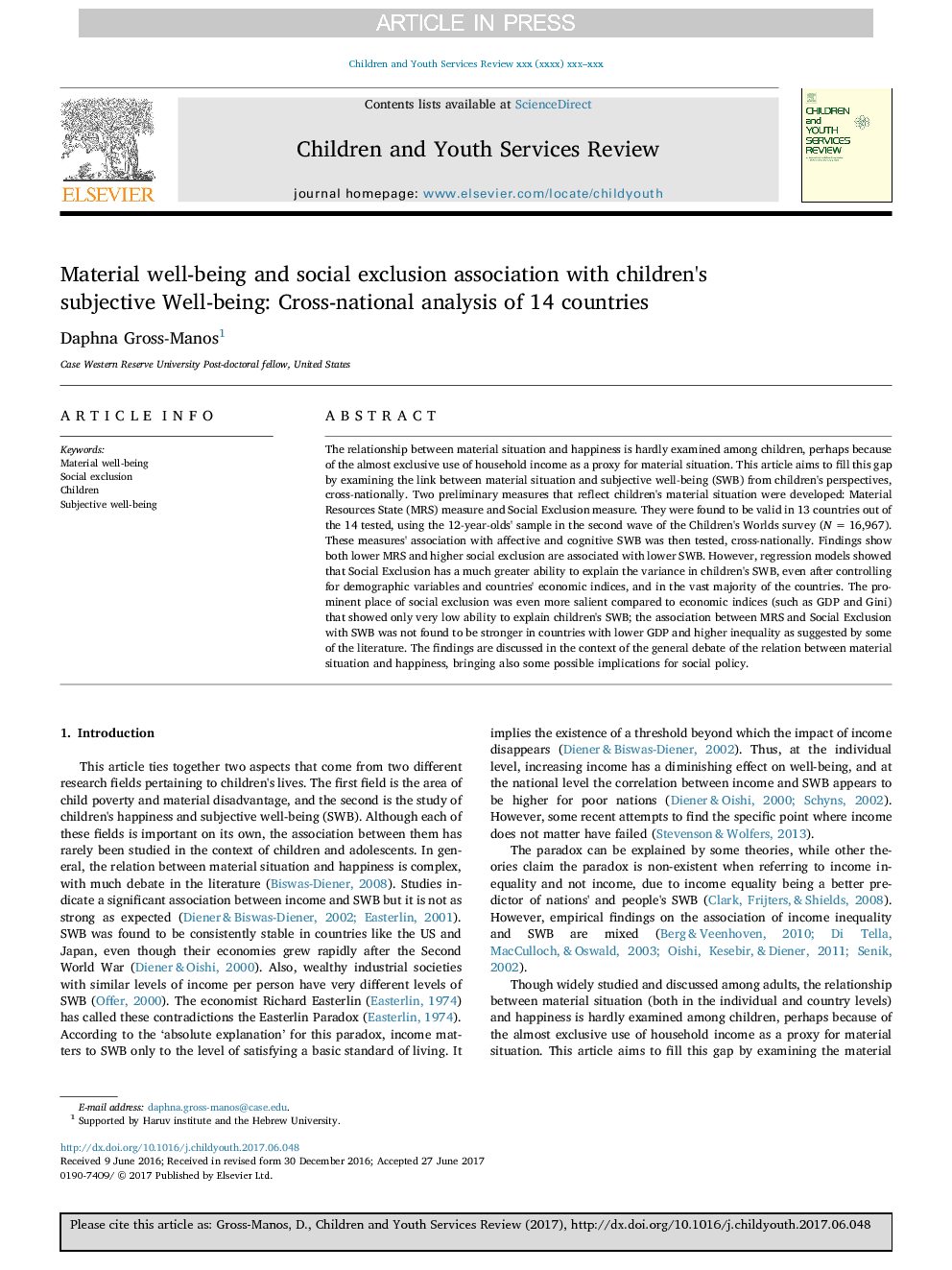ترجمه فارسی عنوان مقاله
رفاه و رفاه اجتماعی با رضایت ذهنی کودکان: تجزیه و تحلیل بینالمللی از 14 کشور
عنوان انگلیسی
Material well-being and social exclusion association with children's subjective Well-being: Cross-national analysis of 14 countries
| کد مقاله | سال انتشار | تعداد صفحات مقاله انگلیسی |
|---|---|---|
| 115953 | 2017 | 13 صفحه PDF |
منبع

Publisher : Elsevier - Science Direct (الزویر - ساینس دایرکت)
Journal : Children and Youth Services Review, Volume 80, September 2017, Pages 116-128
ترجمه کلمات کلیدی
رفاه مادی، محرومیت اجتماعی، فرزندان، رفاه ذهنی،
کلمات کلیدی انگلیسی
Material well-being; Social exclusion; Children; Subjective well-being;

